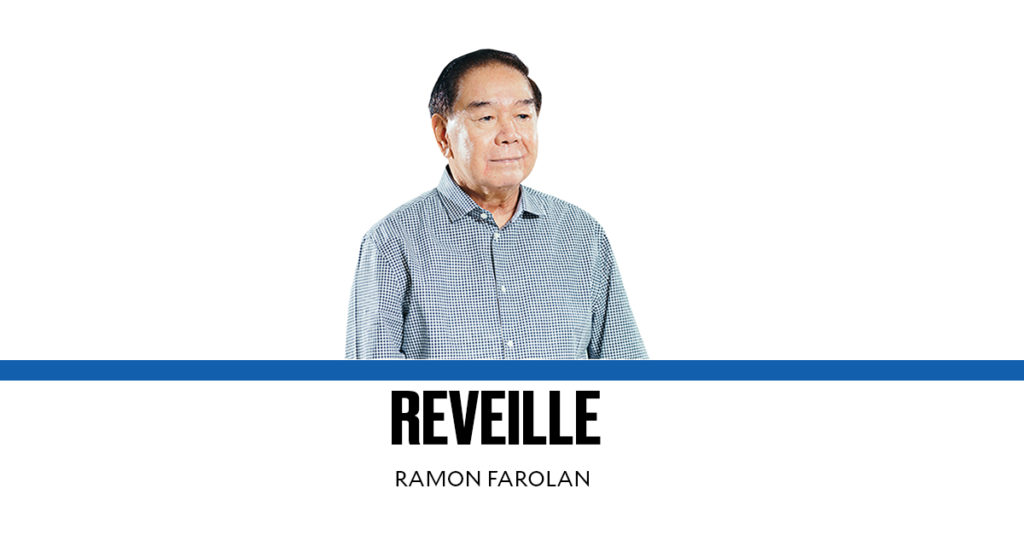The memoirs of Lee Kuan Yew, Singapore’s founding father, are found in two volumes: the first, “The Singapore Story,” deals with the years under British colonial rule, Japanese occupation, the communist insurrection, racial riots, and other events leading to sudden independence in August 1965; the second, “From Third World to First: The Singapore Story, 1965 to 2000” covers the difficult years that saw a tiny trading outpost surrounded by hostile neighbors, develop into one of the world’s most prosperous and progressive nations. In 1965, per capita GDP was $400; by 2000, it rose to more than $22,000.
This miracle took place under the leadership of one man who had the strength of character, the determination, the courage, and the vision to bring about a nation that has been described as “the most remarkable city state since Athens.”
In January 1974, a little over a year after martial law was declared in the Philippines, Prime Minister Lee Kuan Yew of Singapore made his first official visit to the country. His Singapore Airlines flight was escorted by PAF fighter jets as it entered Philippine airspace. I was pulled out from my regular duties at the airport to serve as his aide de camp and the assignment provided me with a ringside seat beside one of the greatest leaders of our time with an unparalleled view of how he conducted himself in public, as well as in private moments away from the prying eyes of media. There was never any doubt you were in the presence of a leader as he spoke with clarity and a sure sense of authority when his steely eyes were focused on you.
At that time, trade between the two countries was minimal, and the visit was more of the “getting to know you” variety. Perhaps, it was an opportunity to test the golfing skills of the two leaders who were both keen on the game. At the Mansion House in Baguio, the Prime Minister was a bit early for the scheduled golf date, and so we took a short walk around. I noticed his keen interest in the flowers and plants that made the surroundings explode in lovely colors and greenery. He asked if I had finished at the nearby academy, and if I had been to Singapore. But I sensed that his main concern was the presence of threatening clouds hovering close by. I assured him that January was the best golfing month in Baguio.
One could say that his game was a reflection of the manner in which he ran his country. His drives were strong and straight, complemented by a good short game, all marks of one who in his younger days would relax by hitting 50 to a hundred balls at the driving range, and then playing nine holes, at times, all by himself. Some folks say that good golfers make excellent executives. They exhibit the same skills: controlled strength, good coordination, great focus and concentration, sensitivity combined with just the right touch for delicate situations.
In a collection of interviews by Graham Allison and Robert D. Blackwill, with Ali Wyne, Lee Kuan Yew expressed his views on some issues of the day:
The role of the leader—“It is the duty of leaders to instill confidence in the people so that they will stand up to be counted. No army however brave, can win when its generals are weak … your job as a leader is to inspire and to galvanize, not to share your distraught thoughts. The test of leadership lies not merely in echoing fears and doubts, especially when these fears and doubts, however real, are capable of solution and being rendered irrational and unfounded. We cannot afford to passively let things drift. We have to take the lead in public thinking. A nation is great not by its size alone. It is the will, the cohesion, the stamina, the discipline of its people, and the quality of their leaders, which ensure it an honorable place in history.”
On popular opinion—“I have never been concerned or obsessed with opinion polls or popularity polls. I think a leader who is, is a weak leader. If you are concerned with whether your rating will go up or down, then you are not a leader. You are just catching the wind … You will go where the wind is blowing … Between being loved and feared, I have always believed Machiavelli was right. If nobody is afraid of me, I am meaningless. When I say something I have to be taken very seriously.”
It may be too much to hope for a Lee Kuan Yew to emerge from among our national leaders. But we would be able to accomplish a lot more if some of our local government units are headed by individuals with the drive, the intelligence, and the integrity of Singapore’s founding father. Ten mini-Singapores throughout the country would make a lot of difference for the nation as a whole.
—————
rjfarolan56@gmail.com
